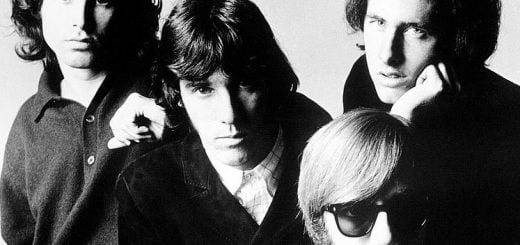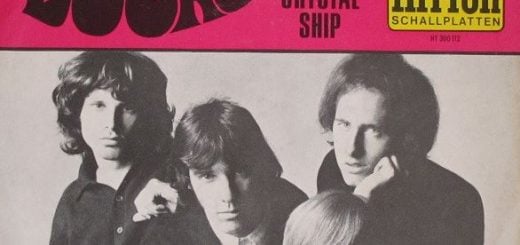03-Been Down So Long by The Doors Lyrics Meaning – The Ascent From Desolation
Lyrics
That it looks like up to me
Well, I’ve been down so very damn long
That it looks like up to me
Yeah, why don’t one of you people
A-come on and set me free?
I said, warden, warden, warden
Won’t you break your lock and key?
I said, warden, warden, warden
Won’t ya break your lock and key?
Yeah, come along here, mister
Come on and a-let the poor boy be
Baby, baby, baby
Won’t you get down on your knees?
Baby, baby, baby
Won’t you get down on your knees?
Come on, little darlin’
Come on, a-give your love to me, oh yeah
Well, I’ve been down so goddamn long
That it looks like up to me
Well, I’ve been down so very damn long
That it looks like up to me
Yeah, why don’t one you people
Come on
Come on
Come on and set me free
The Doors, known for their introspective and often existential lyrics, manage to encapsulate a universal feeling of entrapment in their soul-stirring track ‘Been Down So Long.’ At first listen, it’s a blues-infused cry from the depths, but closer examination reveals layers of meaning that resonate with the human condition. It’s a song that captures the essence of despair and the glimmer of hope that lies in liberation.
Frontman Jim Morrison, with his enigmatic presence and poetic inclination, leads listeners through a cavern of emotions, exploiting the landscape of blues tradition while infusing it with a unique Doors sensibility. We’ll explore the complex emotions and the poetic prowess that Morrison weaves into every line of this timeless song, grappling with its resonance in a world where feeling ‘down’ takes on many forms.
Feeling Like There’s Nowhere Lower to Go
The repeated line, ‘I’ve been down so goddamn long, that it looks like up to me,’ serves as a mantra for the despondent. It’s more than a clever turn of phrase; it’s a lamentation that captures the inescapable sense of hitting rock bottom. For so long, the protagonist has been submerged in his metaphorical darkness that the concept of ‘up’—of improvement and freedom—has become distorted, even unrecognizable.
The perversion of one’s perspective after enduring prolonged hardship isn’t just a personal tragedy; it’s something that resonates with listener’s own moments of despair. It touches on a psychological truth: the longer one dwells in a negative space, the more one’s perception of reality can twist, making the very idea of relief seem foreign or unreachable.
A Cry to Shake the Foundations of Confinement
Addressing the ‘warden’—a figure of authority holding the keys to liberation—reflects a yearning to break free from the chains of confinement. Whether these chains are literally a prison, or metaphorically representing societal shackles, personal demons, or even a destructive relationship, the appeal for freedom is fervent and universal.
By taking the staple blues element of a call-and-response and driving it into the heart of the song, Morrison connects the age-old struggle for release to the personal fight against whatever binds us. His cry to the ‘warden’ transcends individual experience—it’s a raw plea shared by anyone who’s ever felt caged by circumstances beyond their control.
Morrison’s Plea Romance: Seduction or Rescue?
The entreaty, ‘Baby, baby, baby, Won’t you get down on your knees? Come on, little darlin’, Come on and give your love to me, oh yeah,’ may come across as a simple request for romantic affection. Yet, within the context of the song, it’s more—a plea for a deeper connection, the kind of love that has the power to pull someone out of an abyss.
It’s the kind of raw, visceral yearning that doesn’t just want love; it’s the needing of love as salvation, as a redemptive force with the power to resurrect emotions and breathe life into a world grown stale and dark. Morrison’s call to his ‘baby’ is imbued with the desperation of a man for whom love is the last and possibly only means of salvation.
Unlocking The Song’s Hidden Depths
There’s a hidden layer to ‘Been Down So Long’, one intertwined with the tumultuous era in which it was born. The 1960s were rife with political unrest, social change, and a generation’s struggle for identity. Embedded within the blues is Morrison’s commentary on the generation’s collective feeling of being ‘down’—oppressed by outdated societal norms and hungry for a revolution.
When Morrison beckons for someone to ‘set me free’, it’s not just personal liberation he’s speaking of. It’s a generation’s cry for release from the conservative mores of the past, a desperate desire for cultural and spiritual emancipation. Through the blues, Morrison doesn’t just sing a song; he sings a historical narrative, wrapped in the personal but echoing the societal craving for change.
Memorable Lines That Cut Deep
Each utterance in ‘Been Down So Long’ bleeds with emotional gravity, but the simplistically stark ‘that it looks like up to me’ encapsulates the song’s ethos. It’s a line that burrows into the soul, unearthing personal recollections of moments when our own world seemed inverted, when the mere suggestion of hope seemed like an alien concept.
And, as if speaking directly to the audience, the appeal, ‘why don’t one of you people come on and set me free?’ acts as an interactive beacon. It draws us into the narrative, compelling us to reflect on how we, as listeners and as a society, can play a part in liberating not just the song’s protagonist, but any individual from the depths they may find themselves in. It is, in essence, a call to action wrapped in a timeless musical masterpiece.








